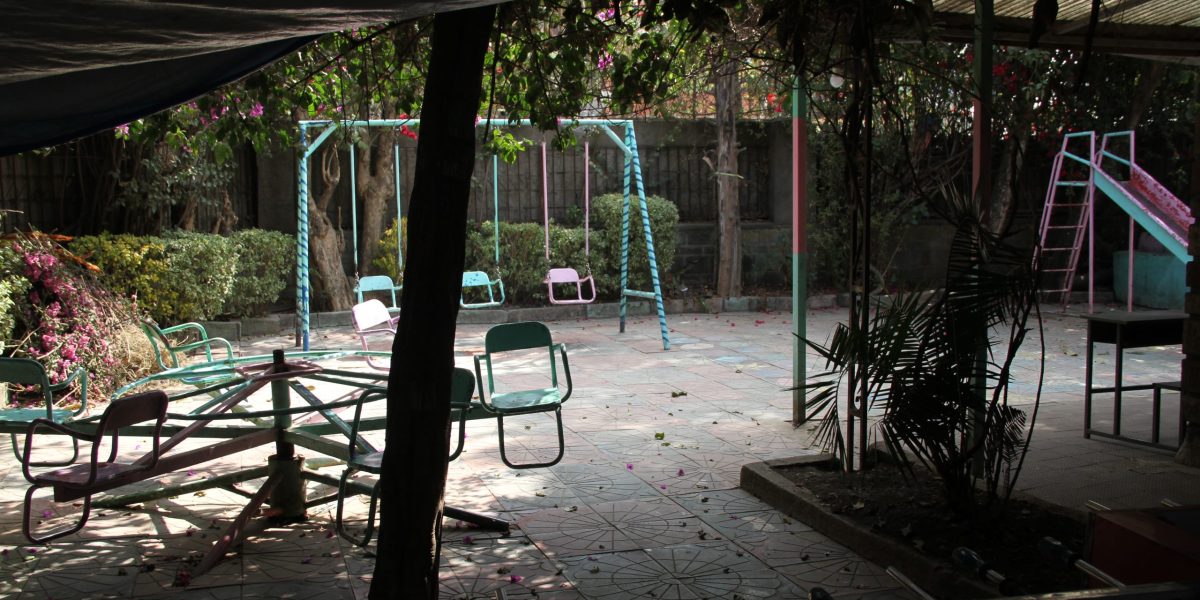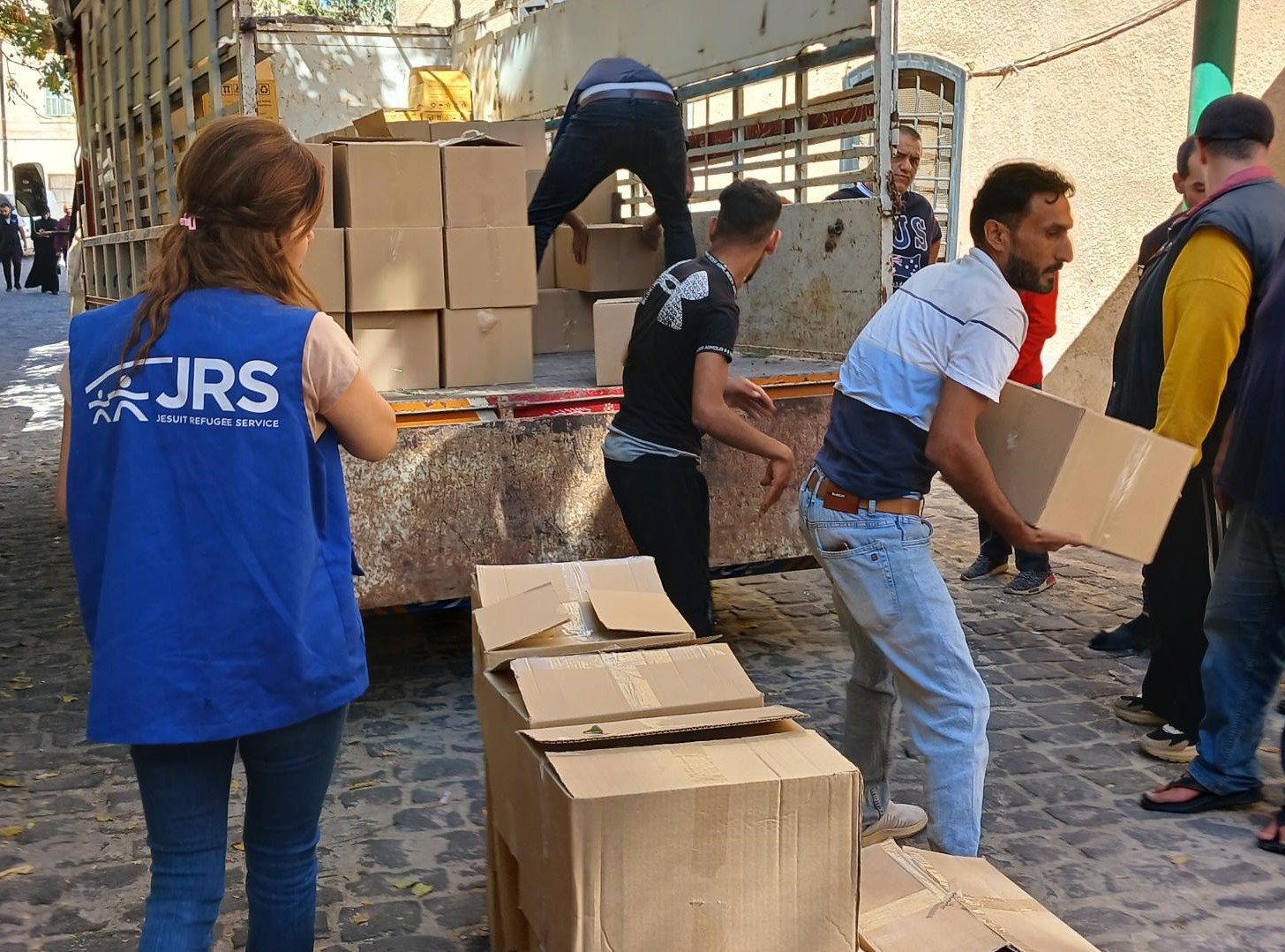
“I had just mobilized to meet new arrivals at the Doro Reception Center to conduct Psychological First Aid (PFA) and psychoeducation sessions when I received the instruction to halt our activities,” said Elizabeth Nyapito. She serves as a Mental Health and Psychosocial Support Officer with JRS in Maban, South Sudan.
“Those waiting for our support were left stranded, filled with questions, as they knew that JRS had always been their reliable lifeline within the camp.” Overnight, programs that thousands of refugees and other forcibly displaced people relied on ceased as the January 24th stop work orders from the Trump Administration reverberated across humanitarian organizations.
In Chad, Colombia, Ethiopia, India, Iraq, South Africa, South Sudan, and Uganda, JRS operates these life-saving programs through funding from the US Department of State’s Bureau of Population, Refugees, and Migration (PRM). In this month’s INSIDER, several global JRS staff members share the impact of the sudden suspension of programing.
Since our inception, JRS has committed to long-term accompaniment, building trust over decades in conflict-afflicted areas, refugee camps, and urban settings. As many of our international offices will report, Jesuits have often been present and working for decades or even centuries, and JRS is often the last NGO to leave a community, ensuring refugees and residents are, as far as possible, set up for success.
Iraq is one of the locations where JRS’s longstanding presence has led to a trusted reputation in the community. JRS Iraq primarily supports Christian returnees and Yazidi internally displaced people (IDPs). But today, all mental health and psychosocial support (MHPSS), protection, and education support programs are paused.
JRS’s MHPSS programs provide care for individuals facing psychological distress, trauma, and mental health challenges. Continuity of care is essential to prevent worsening symptoms or destabilizing those already in treatment. JRS offers individual and group counseling, clinically based therapeutic interventions, and psychiatric care, critical resources for forcibly displaced people trying to heal and rebuild their lives. The abrupt termination puts lives at risk, increasing the likelihood of severe distress, suicidal ideation, and exploitation.
“JRS Iraq’s decade-long mission of accompaniment, advocacy, and support for vulnerable populations is at a critical juncture,” said the JRS Iraq Country Director. “The suspension of funding will have far-reaching consequences on beneficiaries, staff, and the broader humanitarian sector in Iraq.”
The effects in South Africa are just as dire where JRS provides health care to bridge the chasm between the refugee community and access to medical assistance.
“As much as we may feel the pain as implementing staff, our beneficiaries who are terminally ill, bedridden, and have no relative nor support system are to feel it worse,” said a JRS South Africa Social Worker.
Last year, we shared Daniel’s* story: a then 57-year-old refugee from the Democratic Republic of Congo who had just fled to South Africa when he suffered a massive stroke. Paralyzed on the entire right side of his body, Daniel could neither work nor afford rent. On a freezing winter day, JRS South Africa found Daniel living on the streets.
JRS South Africa accompanied Daniel throughout his rehabilitation, search for a job, and finding a home. He attended group physical therapy sessions and built a network at the JRS community center that helped him find hope and a sense of purpose.
“Bringing change to people’s lives, just seeing that we have a positive impact inspires me and motivates me to work harder every day,” said Nomphilio, a JRS South Africa Program Officer and interim Country Director. She was a part of the team who helped Daniel, and thousands of others like him, get back on their feet.
In South Sudan, JRS plays an irreplaceable role in providing care for individuals with disabilities. We operate the only physiotherapy center in the region, offering services that allow children and adults to regain mobility and quality of life. 
James Odinga, an Assistant MHPSS Coordinator at the JRS Rehabilitation Center in Maban, reflected on the impact of the stop work order: “In all my time with JRS since 2021, I have never witnessed the daycare sessions come to a complete stop. The physiotherapy sessions we provide for children with disabilities are transformative; they help these children stand, walk, and ultimately enroll in school.”
He fears for those who depend on these services. Without JRS’s support, many will experience irreversible setbacks.
These stories are not just updates; they are a call to action. Programs that saved lives last week now hang in the balance and what happens next depends on us. As you engage in conversations with your peers, colleagues, friends, and loved ones, tell them about Daniel or about the young Sudanese child with cerebral palsy who had just learned to walk.
If you are not yet ready to have these conversations, or are looking for more ways to help, there are several options. Visit, call, write, or send an email to your representative using our Action Alerts. Or consider making a donation to bridge the gap for these programs. As JRS/USA President Kelly Ryan remarked, “In the face of new policies antithetical to our beliefs, we stand firm in our resolve to uphold the inherent human dignity of every person.”
Stand with us.


